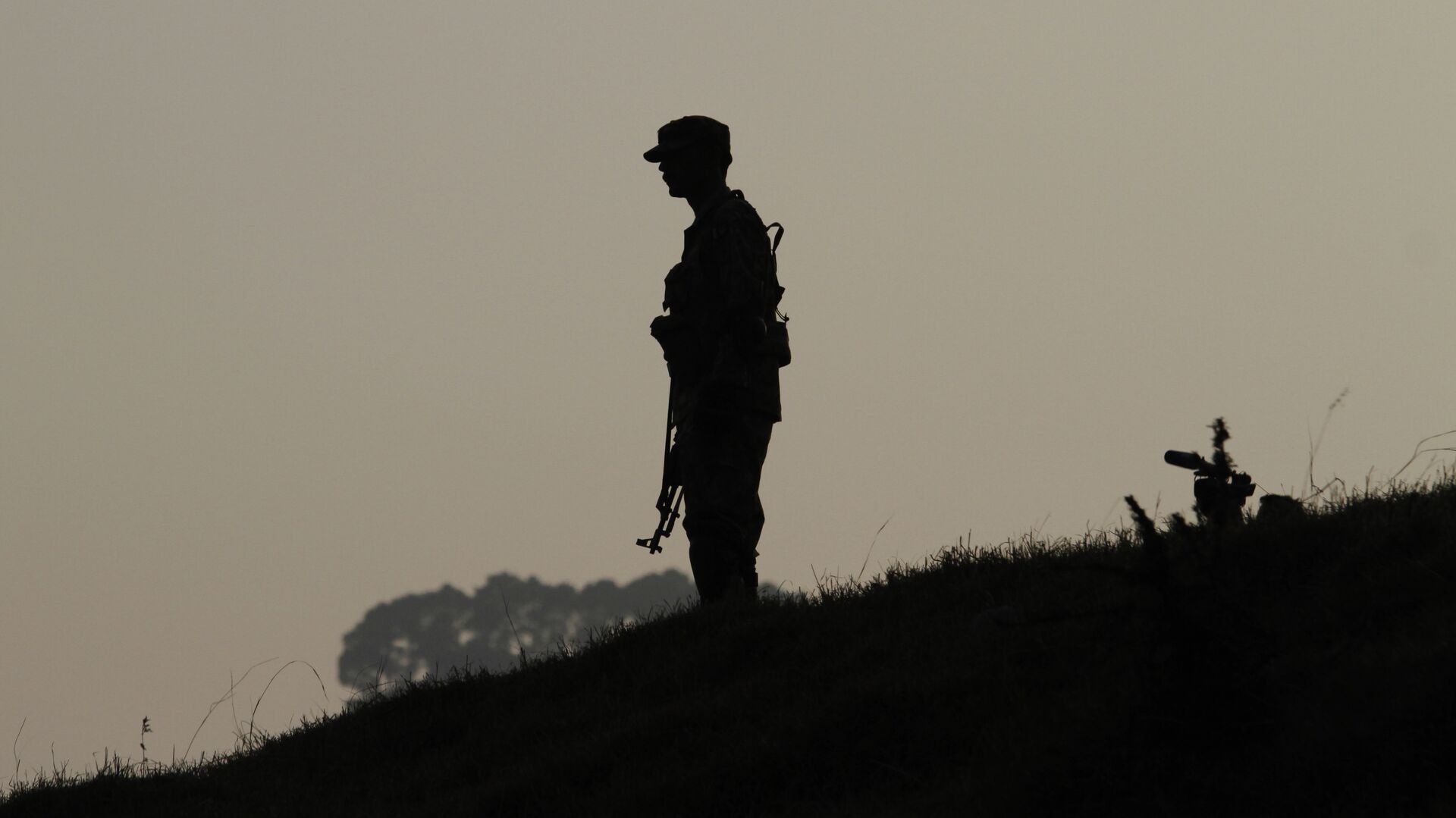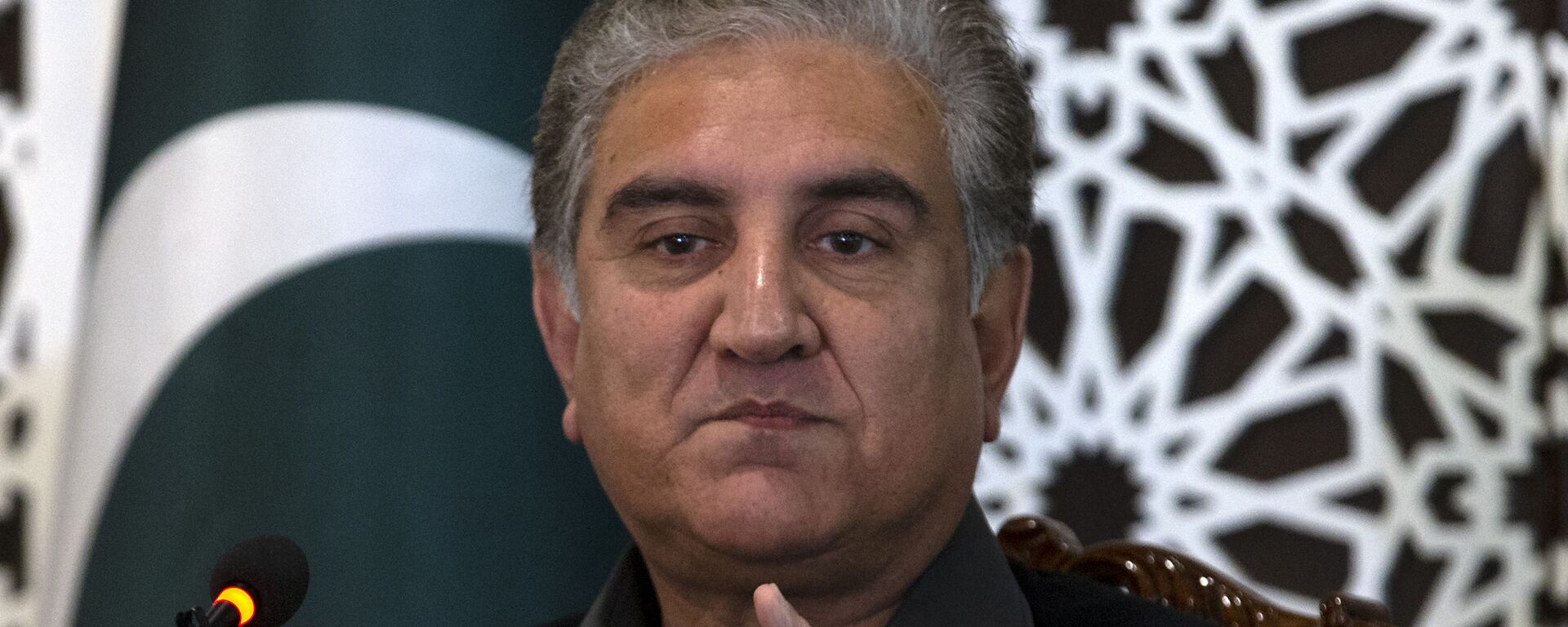Pakistan Rejects India's Charge of Infiltrating 'Militants' into Kashmir After LeT Operative Nabbed

© AP Photo / Anjum Naveed)
Subscribe
Pakistan’s alleged support for terrorist organisations targeting India featured prominently in discussions between Indian Prime Minister Narendra Modi and US President Joe Biden during the former’s recent visit to Washington, DC.
Pakistan on Tuesday rejected India's "baseless propaganda" about pushing in terrorists into Jammu and Kashmir, hours after the Indian Army claimed that a "militant" it had caught alive had been trained at a camp in Pakistan-administered Kashmir.
Pakistan categorically rejects the baseless propaganda by Indian media and the Indian Occupation Forces about arresting an alleged ‘militant’ and killing another on Indian side of the LoC. 1/3 pic.twitter.com/swGUgN0eVh
— Spokesperson 🇵🇰 MoFA (@ForeignOfficePk) September 28, 2021
“Such allegations are an established Indian tactic to mischievously implicate Pakistan and divert (the) world’s attention from its own heinous activities in Indian-administered Jammu and Kashmir. We have shared incontrovertible evidence with the world about India’s grave human rights’ violations in Jammu and Kashmir, including through a dossier,” Pakistan’s foreign ministry said.
Islamabad also said that it was “seriously concerned” about the Indian Army’s attempts to “vitiate the environment” along the de-facto Line of Control (LoC) border through ceasefire violations. Pakistan claimed that it was exercising “restraint” in the face of New Delhi's “provocations”, accusing its western neighbour of violating the ceasefire agreement signed between the Director Generals of Military Operations (DGMOs) of the two armies in February this year.
Pakistan has been lobbying the international community to sanction India over its alleged "human rights' violations" and attempts to "alter the demography" of Jammu and Kashmir, in the wake of New Delhi's policy decision to abrogate the semi-autonomous status of the region in August 2019. On Tuesday, Pakistan's foreign minister Shah Mahmood Qureshi handed over a "dossier" on India's "war crimes" in Jammu and Kashmir to UK Foreign Secretary Liz Truss.
The rebuttal comes a day after the Indian Army claimed that it had intercepted "two terrorists" who had crossed into the Uri sector from Pakistan. Major General Virendra Vats, the General Officer Commanding in Chief (GOC-in-C) of Indian Army’s 19 Infantry Division, told reporters on Tuesday that a patrolling party had “detected” a group of six infiltrators on the Pakistan side of the border on 18 September.
The Indian officer said that an encounter between the infiltrators and the Army ensued on the same day, following which two of them managed to sneak into India while the four others remained on the Pakistani side of the border.
The Army officer said that seven AK-series weapons, over 80 grenades as well as Indian and Pakistani currency had been recovered in search operations carried out by the Army in the Uri and surrounding regions on 18 September.
“Movement of such a large group of people cannot take place without active complicity of the Pakistani Army deployed on the other side,” he said, adding that porters laden with supplies were moving with the group.
Vats revealed that a manhunt for the two infiltrators ended on 25 September, when one of them was killed in an encounter while the other one was caught alive.
The arrested individual has identified himself as 19-year-old Ali Babar Patra, belonging to Pakistan’s Punjab province, as per the information shared by Vats. Patra has told Indian interrogators that he belongs to the banned terrorist organisation Lashkar-e-Taiba (LeT) and was trained in Muzaffarabad, located in Pakistan-administered Kashmir.
The development comes on the heels of India’s concerns over the activities of terrorist organisations such as LeT and Jaish-e-Mohammad (JeM), both of which New Delhi says are being used as proxies by Pakistan to target Indian interests.
“Whether it is in Afghanistan or against India, groups like Lashkar-e-Toiba and Jaish-e-Mohammed continue to operate with both impunity and encouragement,” India’s foreign affairs minister Subrahmanyam Jaishankar said during a United Nations Security Council (UNSC) briefing last month.

